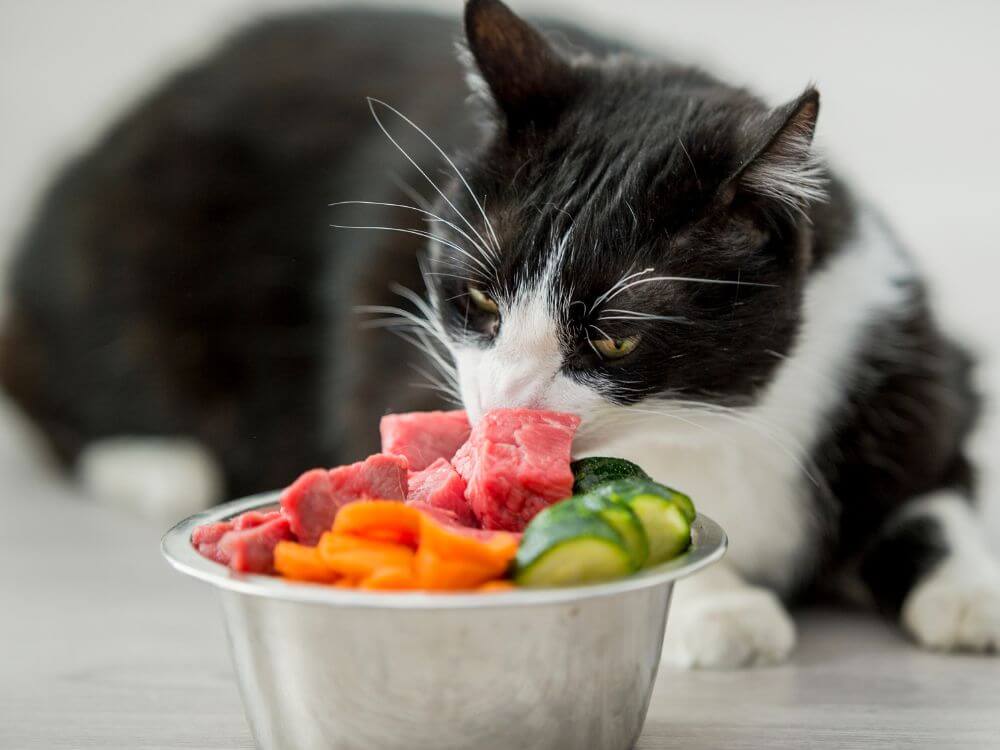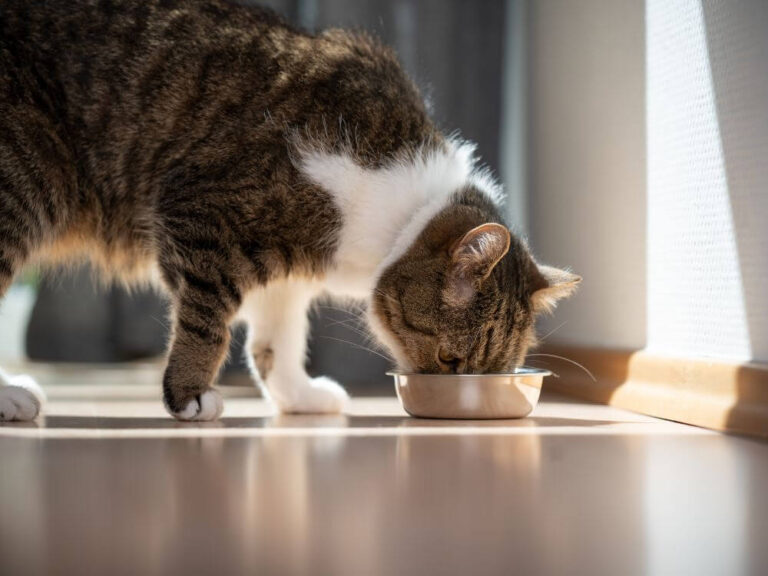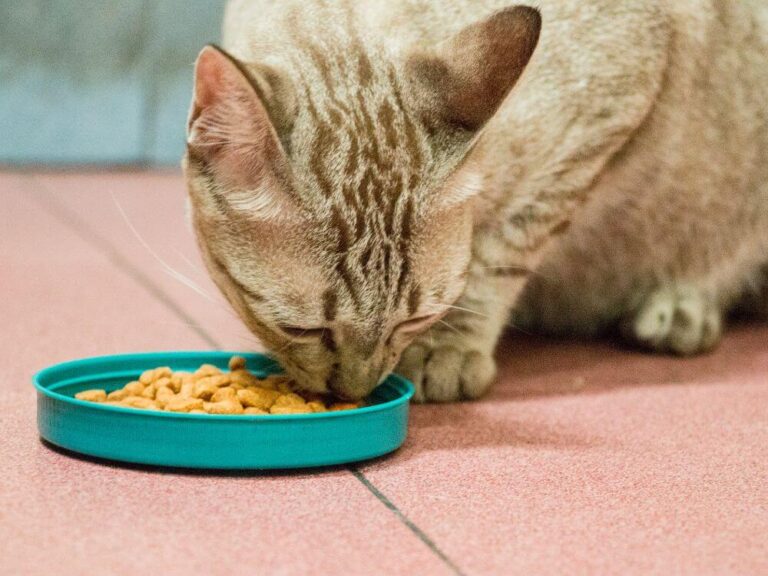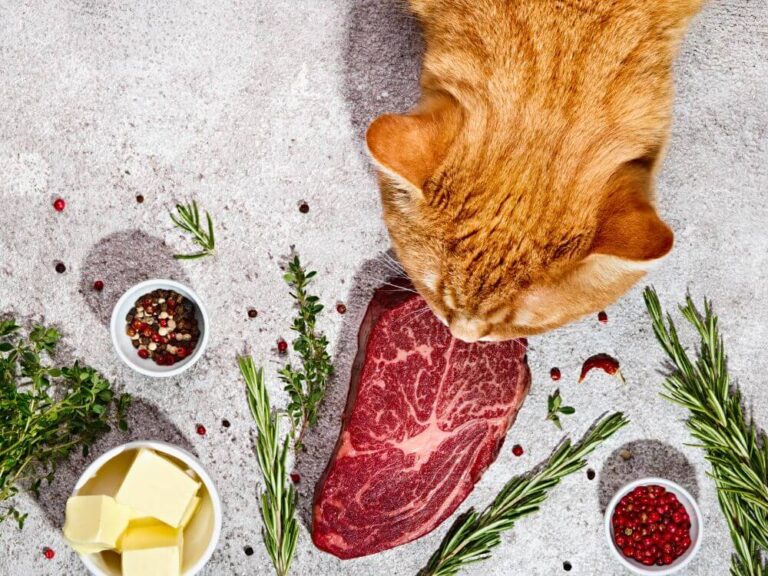Human Food for Cats: What’s Safe and What to Avoid

Sharing food with your cat can be tempting, especially when they beg for a taste of what’s on your plate. However, not all human foods are safe for cats. In this guide, we’ll explore which foods are suitable to give your cat, which ones to avoid, and how to ensure a balanced diet for your feline friend.
Understanding Cats’ Nutritional Needs
Before diving into what human foods are safe, it’s essential to understand that cats are obligate carnivores. This means they require a diet rich in animal protein. Cats rely on specific nutrients found in meat, such as taurine, which is vital for their heart and eye health. Unlike omnivores like dogs or humans, cats do not thrive on a plant-based diet.
Safe Human Foods for Cats
Certain human foods can be beneficial when fed in moderation. These can act as treats or supplements to your cat’s regular diet.
- Cooked Meat
Chicken, turkey, and beef are excellent sources of protein for cats. Always ensure the meat is cooked thoroughly, with no seasonings or added fat, and remove bones to avoid choking hazards. - Fish (Occasionally)
Small amounts of cooked fish, such as salmon or tuna, can be a tasty treat for cats. However, make sure the fish is free from bones and not fried or seasoned. Avoid feeding fish too often, as it lacks essential nutrients cats need for a balanced diet. - Eggs
Scrambled or boiled eggs are safe for cats and are packed with protein. Ensure the eggs are cooked thoroughly to avoid any risk of salmonella. - Pumpkin
Plain, cooked pumpkin (without sugar or spices) can be beneficial for your cat’s digestive health. It helps with constipation and supports a healthy gut. - Cheese
While many cats are lactose intolerant, small amounts of cheese can sometimes be well tolerated. Stick to hard cheeses like cheddar or Swiss, and offer it only occasionally. - Carrots and Peas
Cooked carrots and peas provide some vitamins and fiber. Make sure they are soft enough for your cat to chew and digest. - Blueberries and Strawberries
These fruits are rich in antioxidants and can be given in small amounts. They should be washed thoroughly and cut into small pieces. - Plain Rice
Rice can be helpful for cats with an upset stomach. Serve it plain and cooked, without any seasoning or sauces.
Human Foods to Avoid
While some foods are safe, many common human foods can be toxic or harmful to cats. Avoid giving your cat the following:
- Chocolate
Chocolate contains theobromine, which is highly toxic to cats. Even small amounts can cause symptoms such as vomiting, diarrhea, seizures, or even death. - Onions and Garlic
Both onions and garlic, whether raw, cooked, or powdered, can damage a cat’s red blood cells, leading to anemia. Avoid giving your cat any food seasoned with these ingredients. - Grapes and Raisins
These fruits can cause kidney failure in cats. It’s best to avoid them altogether, even in small quantities. - Avocado
Avocados contain a toxin called persin, which can be harmful to cats. It can cause vomiting, diarrhea, and even more severe complications if consumed in large quantities. - Alcohol
Even tiny amounts of alcohol can be dangerous for cats. It affects their liver and brain function much more quickly than in humans and can be fatal. - Caffeine
Coffee, tea, and energy drinks contain caffeine, which is toxic to cats. Ingesting caffeine can lead to restlessness, rapid breathing, heart palpitations, and muscle tremors. - Milk and Dairy Products
Many adult cats are lactose intolerant, meaning they cannot properly digest milk or dairy. This can lead to digestive issues like diarrhea and stomach discomfort. - Raw Fish or Meat
While cooked meat is safe, raw fish or meat can contain harmful bacteria, such as salmonella or E. coli, which can cause serious illness. Additionally, raw fish contains enzymes that destroy thiamine, an essential B vitamin for cats. - Nuts
Many nuts, especially macadamia nuts, are harmful to cats. They can cause lethargy, vomiting, and even tremors. It’s best to avoid feeding them nuts of any kind. - Fatty Foods
Foods high in fat, such as fried items or fatty cuts of meat, can cause pancreatitis in cats. This condition can lead to severe digestive upset and requires veterinary treatment.
Feeding Guidelines for Cats
If you decide to share some human food with your cat, make sure it’s given in moderation. Human food should never replace a well-balanced, commercial cat diet. Cats require specific nutrients that are difficult to replicate through human food alone. Always ensure that treats make up no more than 10% of your cat’s daily calorie intake.
Additionally, consult with your veterinarian before introducing new foods to your cat’s diet, especially if they have any pre-existing health conditions.
Conclusion
While it’s tempting to give your cat a taste of your meal, it’s crucial to know which human foods are safe and which ones to avoid. Always prioritize a balanced and complete cat food diet to ensure your cat receives all the nutrients they need to stay healthy. With the right choices, you can share occasional treats without compromising your cat’s health.



